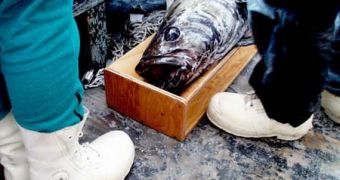The birth of the Antarctic Ocean Alliance, a new environmental coalition, was announced last night, during the annual meeting of the Convention on the Conservation of Antarctic Marine Living Resources.
The Convention struggles to preserve one of the most pristine 19 regions that surround Antarctica, which might be put in danger by human intervention.
Steve Campbell from the Antarctic Ocean Alliance suggested that this area has a unique potential which needs to be exploited only by projects which involve scientific research.
The biggest challenge is to solve the problem of the declining fishing stocks. One of the countries who develop fishing activities often in the region are Korea, New Zealand, Russia, Norway, UK and Spain.
Most of the fishing companies rely on krill and both antarctic and patagonian toothfish, skate and icefish varieties which they are able to find only in these regions.
Their actions might have a negative impact upon the area which is now considered one of the most intact marine ecosystems on the planet.
Limited fishing is able to continue in some areas, but only as long as such projects won't interfere with the regions' great value for science. The area has a great potential for scientific research, being able to provide valuable informations for studies which are elaborated to highlight the climate change.
So far, the marine reserve represents a surface of 600,000 square kilometres, but the officials say that there is more territory for which they have to apply preservation measures.
"We've identified about 19 regions around Antarctica where there could be a marine reserve or marine protected areas set up and this would establish a network of areas all the way around the continent of Antarctica and would be put in place for all time we hope," declared Cambell.
He maintains his optimism, declaring that such a target might become achievable, with the proper support from authorities and major companies, as long as limited fishing is still allowed.

 14 DAY TRIAL //
14 DAY TRIAL //